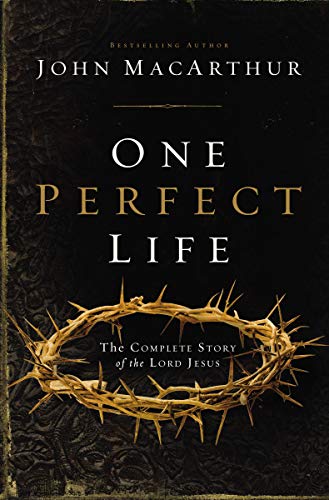Quotes about Jesus_Christ-Birth-Virgin
[The virgin birth] graphically shows that salvation comes “from above” and that the source of our hope and confidence lies in the living God who entered into human history in the historical figure of Jesus Christ. The virgin birth marks off the origin of Christ from the human race just as his end is marked off by the resurrection
Taken from “Jesus Christ, Savior and Lord by Donald Bloesch Copyright (c) 1997, InterVarsity Christian Fellowship/USA. Used with permission of InterVarsity Press, P.O. Box 1400, Downers Grove, IL 60515. www.ivpress.com, p. 94.
Mary’s virginity protected a great deal more than her own moral character, reputation, and the legitimacy of Jesus’ birth. It protected the nature of the divine Son of God… Jesus had to have one human parent or He could not have been human, and thereby a partaker of our flesh. But He also had to have divine parentage of He could not have made a sinless and perfect sacrifice on our behalf.
It would be more proper for us to speak of the Virgin Conception of Jesus than of His Virgin Birth. His birth, as far as we can tell, was like any other birth. So, too, was his embryonic development in the womb of Mary. What sets Jesus apart is the fact that he was conceived by the Holy Spirit in the womb of a virgin (cf. Lk. 1:31, 35).
The biblical evidence :
Matthew 1:18-25
1. Joseph and Mary were betrothed (1:18, 20, 24), a relationship regarded as the legal equivalent of marriage. In other words, betrothal could be broken only by a formal divorce. This is why Joseph is referred to as her “husband” (v. 19).
2. Although betrothed, the relationship had not yet been consummated sexually (see vv. 18, 25; also Luke 1:34).
3. Mary’s pregnancy is attributed to the Holy Spirit:
a. Verse 20 – “of the Holy Spirit.”
b. Verse 16 – “and to Jacob was born Joseph the husband of Mary, by/of whom [feminine] was born Jesus.” Matthew clearly excludes Joseph.
c. Note that the repeated active verb (“was the father of” or “begot”) gives way to a divine passive in v. 16 (i.e., God is the active agent in the conception and birth of Jesus).
4. Joseph is instructed to take Mary into his house and to name the child (vv. 20-21) thereby establishing for Joseph legal paternity of the child. Hence the community came to believe that Joseph was Jesus’ father (Lk. 2:48; Mt. 13:55).
Luke 1:26-38
1. Mary is explicitly identified as a “virgin” (parthenos, v. 27), a fact she confirms in v. 34.
2. Verse 35 clearly attributes the conception to the work of the Holy Spirit.
3. The terms translated “come upon” and “overshadow” (v. 35) are not euphemisms for sexual relations. They are simply figurative expressions for divine intervention by which God will supercede the natural order of things.
4. For the term “overshadow,” see Ex. 40:35; Psm. 91:4; 140:7; Mt. 17:5; Mk. 9:7; Lk. 9:34 (cf. also Gen. 1:2). The emphasis is on the powerful creative presence of the Spirit in bringing to pass the conception of the man Jesus.
Excerpted from: Virgin Birth, November 6, 2006, www.enjoyinggodministries.com. Used by Permission.
Seven Important Facts concerning the Virgin Birth of Jesus:
1. The virgin birth was not a demonstrable event. I.e., it was not the sort of miracle that was subject to empirical investigation and proof (as were, for example, the resurrection and the healing of Acts 3-4). We either believe the virgin birth or not based upon our belief in the reality of the supernatural and the integrity of Scripture.
2. The virgin birth was not the beginning of the Son of God. The Son of God was eternally pre-existent (cf. John 1:1; 8:58). The virgin birth is only the beginning of the God-man, Jesus.
3. The virgin birth does not entail a reduction or denial of the deity of Christ. There was not in the virgin birth a transformation of deity into humanity, as if to suggest that the second person of the Trinity has been transmuted into a man. God the Son did not cease to be God when he became a man.
4. The virgin birth does not entail a reduction or denial of the humanity of Christ. There are three ways of coming into being: born of man and woman (us), born of man but not woman (Eve), and born of neither man nor woman (Adam). All admit that we, as well as Adam and Eve, are all human. So why not then a fourth way of coming into being: born of woman but not man (Jesus). The New Testament provides overwhelming evidence both for the reality of the virgin birth and the full humanity of Jesus.
5. The virgin birth does not require us to believe in the immaculate conception of Mary (as proclaimed by Pope Pius IX on Dec. 8, 1854). The doctrine of the “immaculate conception” is the idea that Mary herself was conceived without sin. The RCC also teaches that “in consequence of a Special Privilege of Grace from God, Mary was free from every personal sin during her whole life” (Fundamentals of Catholic Dogma, p. 203). But there is not one word in the New Testament that remotely suggests Mary was conceived in a way different from any other human being. Furthermore, Mary herself confessed she was a sinner in need of a savior (Luke 1:47).
6. The virgin birth does not require us to believe in the perpetual virginity of Mary (as proclaimed by the Council of Trent in 1545-63).
a. See Matthew 1:25.
b. See Luke 2:7 where Jesus is described as her “first-born” son. If she had remained a virgin, would not Luke have described Jesus as her “only” son?
c. Jesus’ half-brothers and half-sisters are mentioned in the New Testament (Mk. 3:31-35; 6:3; Lk. 8:19-21; Jn. 2:12; 7:1-5, 10; Ac. 1:14; 1 Cor. 9:5; Gal. 1:19). These were not, as the RCC claims, his cousins. Even if Mary did not have other children, this does not prove she remained a virgin all her life.
d. This doctrine would also require us to believe in the perpetual virginity of Joseph!
e. This idea is based on an ascetic, un-biblical view of sex, according to which sexual relations are defiling or demeaning.
7. The virgin birth does not elevate Mary to a place of worship and veneration. Note these unbiblical declarations of the RCC: “As no man goes to the father but by the son, so no one goes to Christ except through his mother” (Pope Leo XIII, 1953). “It is the will of God that we should have nothing which is not passed through the hands of Mary” (Pope Pius XII, 1953).
Excerpted from: Virgin Birth, November 6, 2006, www.enjoyinggodministries.com. Used by Permission.
The Virgin Birth was in fulfillment of Old Testament prophecy. See Isa. 7:14 and Mt. 1:22-23. But…there is little to indicate that the Jews themselves understood Isa. 7:14 in this way during the time of the Old Testament.
The Virgin Birth alone insured both the full deity and full humanity of Jesus. If God had created Jesus a complete human being in heaven and sent Him to earth apart from any human parent, it is difficult to see how He could be truly a man. If God had sent His Son into the world through both a human father and mother, it is difficult to see how He could be truly God.
Was the Virgin Birth necessary to secure the humanity of Jesus from the corrupting taint of inherited sin? Among those who have said Yes are Gregory the Great, Ambrose, Augustine, Aquinas, and Luther. The line of descent from Adam to Jesus is partially interrupted in view of the fact that he did not have a human father. But why would he not have inherited corruption of nature from Mary? Luke tells us that it is because the Holy Spirit is responsible for Christ’s conception that the child in Mary’s womb is to be called “holy” (Lk. 1:35). Contrary to popular opinion, there is no biblical evidence to suggest that the sin nature is transmitted exclusively through the father’s seed.
The principal reason for the virgin birth was so that the entry of God into human flesh might be by divine initiative. It is not by any human act or at any human initiative that salvation comes to us. It is divinely initiated. Man does nothing. Mary did nothing (other than to submit to what God would do). Joseph did nothing. God did it all.
The Creator had woven Himself a robe of virgin flesh.
Only as the Holy Spirit takes the place of the human father in Jesus’ conception can it be true that the one conceived is both fully God and fully man. Christ must be both God and man to atone for sin, but for this to occur, He must be conceived by the Holy Spirit and born of a human virgin. No one else in the history of the world is conceived by the Spirit and born of a virgin mother. Therefore, Jesus alone qualifies to be Savior.





